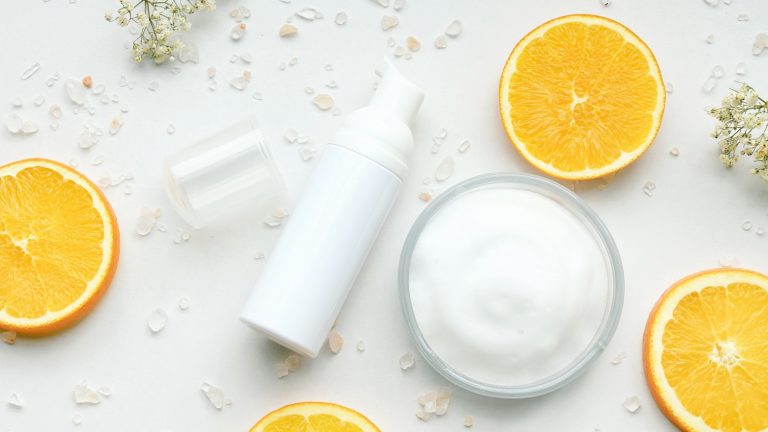Snowy landscapes and crisp winter mornings sound like a winter fairytale. Except for your skin which rebels at being exposed to such harsh conditions! It gets red, inflamed, and causes all kinds of trouble. What can you do?
Red, flaking, itching, and cracking skin affects millions of people at the change of the season. Winter doesn’t spare our skin. And making the situation even worse: when temperatures plummet, we turn on the heating, robbing the air of moisture.
7 skincare tips for hydrating dry winter skin
You probably can’t escape winter, spending cold months at a balmy tropical location. So the next best thing is to make sure your skin gets all the care and protection you can provide. Here are the top tips for winter skincare:
- Don’t take long, hot showers. As much as you might enjoy taking lengthy steamy showers (or baths), they do more harm than good. High water temperature and evaporation of water off your skin contribute to skin dryness. After your shower, immediately apply a generous amount of moisturiser to retain as much moisture as you can.
- Use rich cream moisturisers. Choose rich creams over lotions, and look for moisturising ingredients such as hyaluronic acid, lactic acid, and urea. For your face, you can get rosehip or argan oil, while pure shea butter works wonders on chapped lips, hands, elbows, and feet.
- Use a humidifier. Heating draws the moisture out of the air and leaves your skin feeling tight and uncomfortable. Investing in a humidifier can be a great idea. And you can add essential oils for a home aromatherapy session!
- Choose gentle skincare products. Be careful of alcohol in skincare products. Especially makeup removers tend to contain the type of alcohol which dries out your skin (denatured or isopropyl alcohol). Selecting pH neutral cleansers is also a good idea. After washing, pat the skin dry instead of rubbing it.
- Exfoliate less. How often we should use peelings to exfoliate depends on the skin type. If yours is sensitive or dry, rubbing off its outermost layer is especially not a good idea in winter when your skin’s defenses are already down. Once a week is enough to get rid of dead skin cells, but be sure to choose a gentle exfoliant.
- Use gloves when cleaning. Cleaning products can be very rough on your skin, so using gloves when you’re making your home spotless and shinny is good advice all year round. Remember that your hands are among the most exposed parts of your skin and deserve special care and attention to keep them from getting chapped.
- Take care of proper diet. The lack of micronutrients leads to a lack of moisture, so make sure that your diet includes plenty of fatty fish, avocado, papaya, olive oil, and nuts. Those are the foods that help hydrate and rejuvenate your skin.


Consider your genes
Hydration is among the skin characteristics directed by your genes, specifically, the AQP3 gene. It regulates a protein called aquaporin-3 (AQP3). Aquaporin-3 forms pores in the skin cells’ membrane through which water and a small number of solutes (such as glycerol) can be effectively transported. If you have decreased hydration ability, you need to closely monitor how your skin behaves, to provide it with what it needs.
Your genes determine many other skin-related factors. A certain genotype can result in a faster breakdown of collagen and a loss of skin elasticity and firmness. You might need to invest in a face cream with coenzyme Q10 or increase the intake of vitamin A, C, and E.
Your genes also reveal your skin’s inflammation sensitivity, antioxidant capacity, speed of ageing, and even a predisposition for cellulite and stretch marks! Getting to know your skin from the perspective of genes is definitely a worthy investment.


Don’t forget about stress!
While winter can be really rough on your skin, there is another factor you should not overlook – stress. Research has confirmed skin to be an “immediate stress perceiver and a target of stress responses”. As such, stress can trigger or worsen psoriasis, atopic or contact dermatitis, acne, alopecia areata, and other skin conditions.
Stress knows no seasons and can wreak havoc on the coldest winter or the sunniest summer day. Our job is to limit our exposure and, more importantly, to manage it. To do that, you need to first figure out how you respond to it. When it comes to stress, you might be a “warrior” or a “worrier”.
Your genes and your lifestyle can help you adjust your skincare routine and your everyday activities to support healthy skin. This way, you can still spend your winters frolicking in the snow or enjoy cosy evenings at home and still have radiant and nourished skin.

















